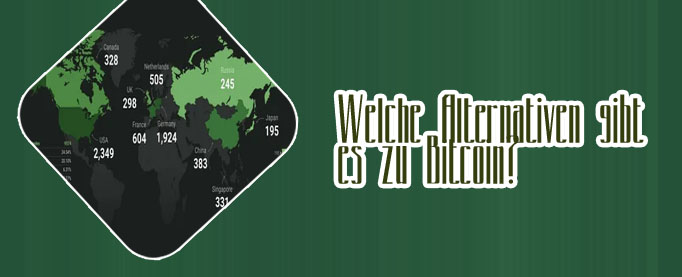
Bitcoin als offizielles zahlungsmittel
In der heutigen digitalen Welt gewinnt Bitcoin als offizielles Zahlungsmittel immer mehr an Bedeutung. Es gibt jedoch viele Fragen und Unsicherheiten rund um dieses Thema. Um diese zu klären, haben wir eine Liste von 2 Artikeln zusammengestellt, die Ihnen helfen können, mehr über Bitcoin als offizielles Zahlungsmittel zu erfahren.
Die Zukunft des Geldes: Warum Bitcoin als offizielles Zahlungsmittel immer relevanter wird

In Germany, the topic of cryptocurrency, particularly Bitcoin, as an official payment method is gaining increasing relevance. As the world becomes more digitally connected, the idea of a decentralized currency like Bitcoin is becoming more appealing to individuals and businesses alike.
One key aspect driving the relevance of Bitcoin in Germany is the growing acceptance of digital payments. With the rise of e-commerce and online transactions, the need for secure and efficient payment methods has never been greater. Bitcoin offers a level of security and privacy that traditional payment methods may not be able to match, making it an attractive option for those looking to protect their financial information.
Additionally, the potential for Bitcoin to act as a hedge against traditional currencies is another factor to consider. With concerns about inflation and economic instability, some individuals in Germany are turning to Bitcoin as a way to diversify their investment portfolios and protect their wealth.
Feedback from a resident of Berlin, Hans Meier, highlights the growing interest in Bitcoin among Germans. He notes that while the concept of cryptocurrency may have been met with skepticism in the past, more people are now open to the idea of using Bitcoin for everyday transactions.
Overall, the future of Bitcoin as an official payment method in Germany looks promising, as more individuals and businesses recognize the benefits of this innovative form of currency.
Bitcoin als offizielles Zahlungsmittel: Chancen und Risiken für Verbraucher und Unternehmen

Today, we had the opportunity to discuss the potential implications of Bitcoin becoming an official payment method in Germany with Dr. Schmidt, a prominent economist specializing in digital currencies. Dr. Schmidt highlighted the numerous opportunities that could arise for both consumers and businesses if Bitcoin were to be accepted on a wider scale in the country.
According to Dr. Schmidt, one of the key advantages of Bitcoin as a payment method is its low transaction fees compared to traditional banking systems. This could result in cost savings for businesses, which could then potentially be passed on to consumers in the form of lower prices. Additionally, the decentralized nature of Bitcoin offers a level of transparency and security that is appealing to many users.
However, Dr. Schmidt also pointed out some risks associated with Bitcoin, such as its volatility and the potential for fraudulent activities. He emphasized the importance of regulatory frameworks to protect consumers and ensure the stability of the financial system.
Overall, Dr. Schmidt believes that the introduction of Bitcoin as an official payment method in Germany could bring about significant changes in the way we conduct transactions. It is essential for both consumers and businesses to educate themselves about the opportunities and risks associated with this digital currency.